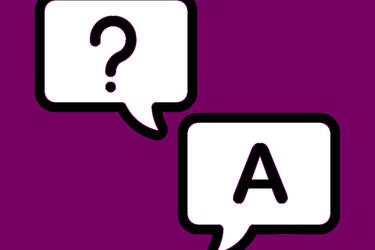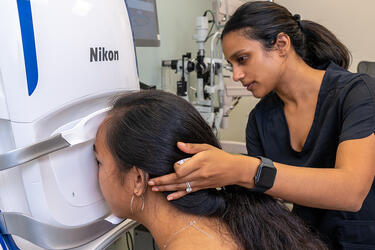
Welcome Admitted Students!
Learn the top five facts about healthcare and health insurance at MIT.
Appointments
Need a checkup? Not feeling well? Getting the care you need starts with scheduling the right type of appointment.
Ask Our Digital Navigator
Need to schedule an appointment? Have a question about our services? Our friendly Digital Navigator is here to help.
Eye Service
MIT Health's Optometry & Ophthalmology Service provides a complete range of services: optometry, ophthalmology, and contact lens care.



